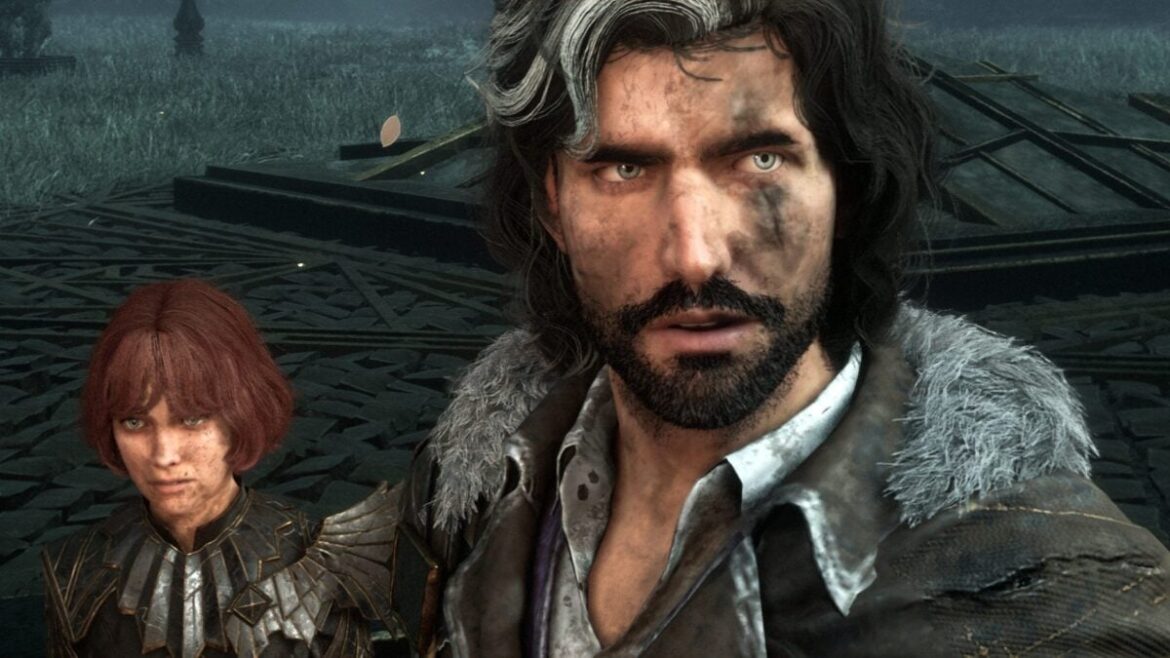One of the many consequences of modern fandom’s obsession with “canon” is that stories that have open-ended themes or choices are now held to a new standard of scrutiny. Swaths of the video games we play are about choice, whether that be in the weapons we wield or the sacrifices we make; however, because the internet has become fixated on listing events in bullet points on wikis, the act of making choices and watching the consequences unfold isn’t enough. Some players want to be “right,” and they want video games and their creators to tell them so. Clair Obscur: Expedition 33 is not primarily a choice-based game, but it does offer one at the very end that changes the story entirely. Since the RPG launched back in April, fans have debated the merits of both outcomes, but because a sequel is coming and some people need validation, the developers at Sandfall Interactive have come out and said there is no “correct” ending.
Clair Obscur ends in one of two ways, depending on whether or not the player chooses to play the final duel as either the paintress Maelle or Verso, the painted version of her deceased brother. In an interview with Lits Play, Clair Obscur lead writer Jennifer Svedberg-Yen spoke about how both endings of the game are valid and were made with purpose. Neither was meant to be the “other” or “wrong” choice.
“I tell everyone there is no ‘correct’ ending, there is no ‘canon’ ending, there is no ‘official Sandfall’ ending,” Svedberg-Yen said. “Both endings are there for a reason; we put them both there for a reason; they were designed in a very particular way. Neither is perfect. Both are heartbreaking in their own ways. Both of them have parts that make you glad, parts that you feel like, ‘okay, I want a happy ending for these characters,’ but both of them also have their own cost. It’s a reflection of reality. You know, a lot of times, some people’s happiness does come with its costs. Things are very rarely perfect. And I think we were really trying to also show both sides of the story.”
She’s right. Obviously, the debate over which is the morally correct answer is a whole different discussion. I personally chose the Maelle ending because it felt thematically appropriate, while also understanding that the Verso choice is probably the one that provides the most closure. Both have their merits and drawbacks, and one of the rewarding things about choice-based games is that we get to argue about those forever. However, this modern need to have these decisions declared “correct,” either by the text or by the developers, has added an often dismissive layer to those discussions.
To some extent, this goes back to an attachment players have to their own “canon.” If a sequel like Infamous Second Son chooses one of its predecessor’s endings to build off of, it raises questions about the other choice. Why was it there if it was going to be cast aside? What does it say about players who chose the other option? Were they wrong? Was any debate about the morality or merits of that choice for nothing? This is a cloud that has been hanging over the next Mass Effect game for nearly a decade, as the remnants of BioWare have to figure out how they’re going to make a fifth game set in the Milky Way that either works for all of Mass Effect 3’s galaxy-defining final choices, or picks one and moves the timeline forward from there.
BioWare is an interesting example to point to when it comes to this dilemma, because even though the Mass Effect and Dragon Age communities love to throw around terminology like “canon” to refer to specific choices that are chosen by default if players don’t import a world state or save from a previous game, the studio doesn’t view it that way at all. The team has even said it would rather not acknowledge a decision in a sequel like Dragon Age: The Veilguard than contradict it. This allows players to feel like their world state is valid, even if they’re not staring the ramifications of it in the face every game.
Maybe it’s because I grew up spending a lot of my early roleplaying days working within the gaps that developers didn’t fill, but I’ve never looked for confirmation from games that I was “right” when I made a decision. The need for a game or developer to justify what you’ve done suggests that making choices in games is about aligning your actions with the “true vision” of the developers, rather than actually expressing your own agency within the story. I almost always treat roleplaying in games as an opportunity for self-reflection. It’s a big part of why I make myself in character creators. These are my stories, and I’ll write them how I want. I’d rather a developer not pat me on the head and tell me everything I did was “correct” or aligned with canon; that’s not what it’s about, and it shouldn’t be a factor in our decision-making process.
Perhaps the uncertainty about “what really happened” is too much for some people. For me, that flexibility, the co-existence of multiple possibilities and my ability to shape which way things go, is the best part of when games give me that autonomy. But the best choice-based games are the ones we’re still debating years later, not the ones for which the developers have retroactively decided which was the “one true choice.” So shoutout to Sandfall Interactive and Svedberg-Yen for sticking beside the decision they handed players, rather than capitulating to some imagined idea of “canon.” I hope they stay true to that in the inevitable sequel.

